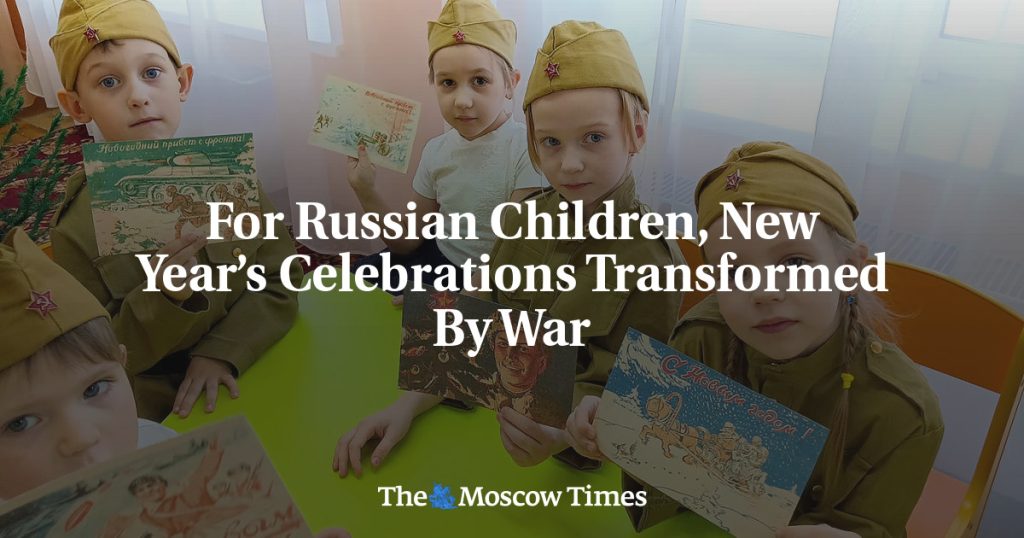In Russia, the New Year has historically been a significant family holiday, especially during the Soviet era when it was promoted as a secular alternative to Christmas. However, three years into the Kremlin’s invasion of Ukraine, the holiday has become a tool for the state to indoctrinate children with its wartime ideology. This is evident through soldiers visiting children for New Year’s celebrations, Ded Moroz bringing staples instead of gifts, and children in orphanages sending messages to soldiers at the front. Efforts to promote support for the war and the Russian military have reached kindergartens and schools, with children being involved in pro-war activities and mandatory propaganda lessons about Russian history.
Despite efforts to keep New Year’s celebrations free from overt political messaging, educators have found it increasingly difficult to do so due to the state’s propaganda efforts. Schools and preschools typically hold New Year’s celebrations for children, where they receive sweets and toys from Ded Moroz and Snegurochka. However, recent events in the Kemerovo region saw Ded Moroz arriving dressed as a partisan to deliver greetings on behalf of Russian soldiers, handing out bread and sugar instead of sweets as a reminder of war times. Children were also dressed in military uniforms for the event, further normalizing the association between children and war.
Children in various regions of Russia have been engaged in activities that promote patriotism and support for the war in Ukraine. Preschoolers received New Year’s gifts from soldiers fighting in Ukraine and engaged in conversations about patriotism with members of youth groups. The peak of militarism at children’s events typically occurs on Victory Day and Defender of the Fatherland Day, where children are encouraged to create greetings for soldiers. This militarization of children’s events is aimed at instilling a sense of external danger and the need for defense, especially in orphanages where caregivers play the role of parents.
The militarization of New Year’s celebrations in Russia has sparked a range of reactions from parents and local residents, with some expressing outrage and shame while others feel nostalgia for the Soviet Union. Events featuring characters like Josef Stalin and “Barmaley the Liberal” have been met with mixed responses, with some finding them cringe-worthy and others indulging in nostalgia. The normalization of war in children’s eyes through these events is concerning to child psychologists, who emphasize the importance of protecting children from such propaganda. The government’s push for patriotic education for children is expected to intensify in the coming year, with 2025 declared as the Year of the Defender of the Fatherland.
The increasing involvement of children in pro-war activities and propaganda campaigns is a worrying trend in Russian society. In an effort to align the youth with the current political climate, authorities are using New Year’s celebrations and other events to instill patriotism and support for military actions. The use of children in these campaigns raises concerns about the impact on their mental health and well-being, as they are being exposed to messages and activities that may not be developmentally appropriate. As the government continues to prioritize patriotic education, it is crucial for parents, educators, and caregivers to protect children from harmful propaganda and ensure their emotional and psychological safety in these challenging times.


